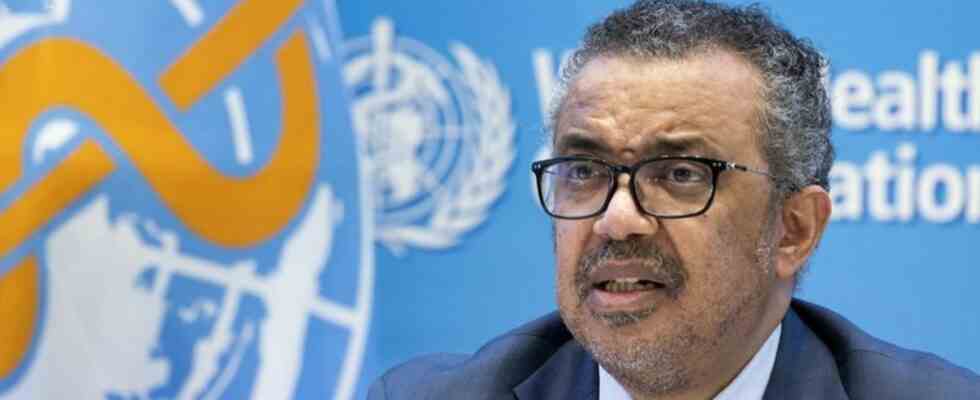Health
Nearly 5000 cases of monkeypox reported worldwide
Tedros Adhanom Ghebreyesus is the Director-General of the WHO. Photo: Salvatore Di Nolfi/KEYSTONE/dpa
© dpa-infocom GmbH
The number of cases of monkeypox is growing all over the world. Europe is hardest hit. The World Health Organization is concerned. Experts advise in Geneva whether the alarm should be sounded.
Nearly 5,000 cases of monkeypox have been reported in humans worldwide this year. In more than 40 countries outside of Africa, where monkeypox was practically unknown until May, there were 3,308 cases, according to data from the US health authority CDC as of Wednesday shortly before midnight CEST.
According to statistics from the World Health Organization (WHO), there are also around 1,600 suspected or confirmed cases in eight African countries, many of which have known such outbreaks for years.
The emergency committee on monkeypox convened by the WHO began its deliberations in Geneva on Thursday. The experts represented in it are to assess whether it is an “emergency of international concern”, the highest alert level that the WHO can impose.
No practical consequences
The WHO usually follows the recommendation of the experts. This would not have any practical consequences, but it should wake up all countries to look out for cases and take their own precautions to contain the spread.
“Human-to-human transmission is ongoing and likely underestimated,” WHO chief Tedros Adhanom Ghebreyesus told committee members. Most reported cases involve men having sex with men. In Nigeria, the proportion of women affected is higher than anywhere else. A good 70 deaths were also reported in Africa. In people with a compromised immune system, pregnant women and small children, there is a risk of severe disease progression in the event of an infection. “It is important that countries remain vigilant and strengthen their capacities to prevent the spread,” said Tedros.
According to the WHO, the result of the deliberations is not expected until Friday at the earliest. Depending on the decision of the WHO, the committee meets at loose intervals over several weeks or months. The Chair is Jean-Marie Okwo-Bele from the Democratic Republic of the Congo. Amongst others, specialists from Japan, Brazil, Thailand, Switzerland, Russia, Morocco and Nigeria are represented.
Most cases outside of Africa were reported in 29 countries in the WHO European region: a total of 2746, as reported by the EU health authority ECDC and the Regional Office for Europe of the World Health Organization WHO in a joint analysis. As can be seen from the data, almost all of the confirmed cases are male. Around 44 percent of those affected were between 31 and 40 years old. Deaths have not yet been reported.

